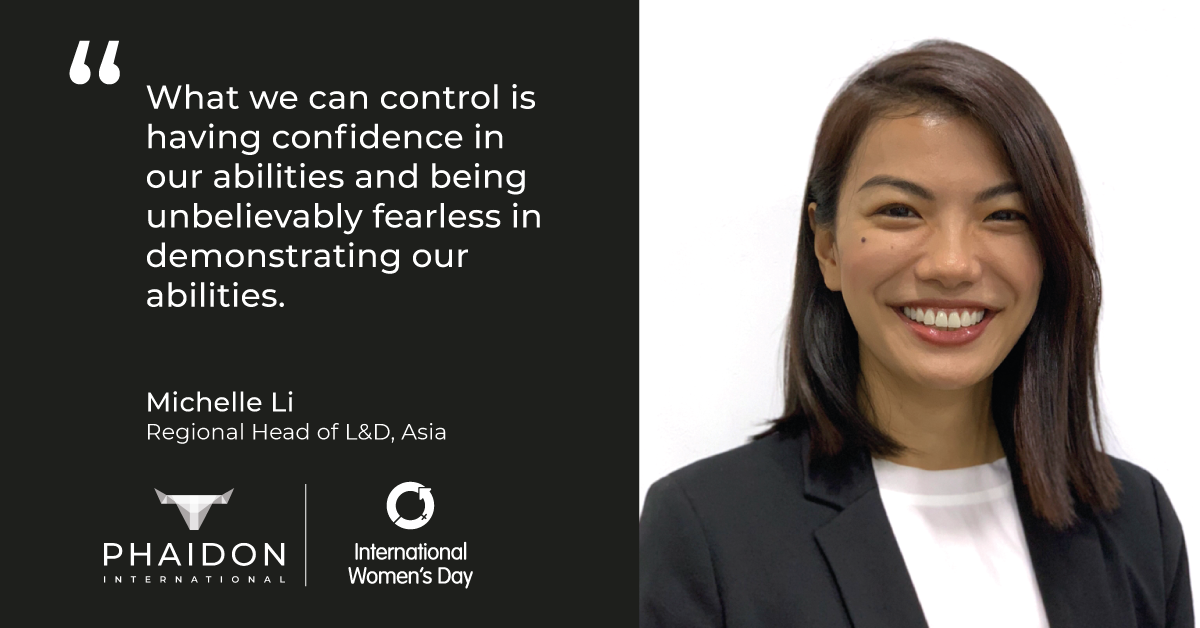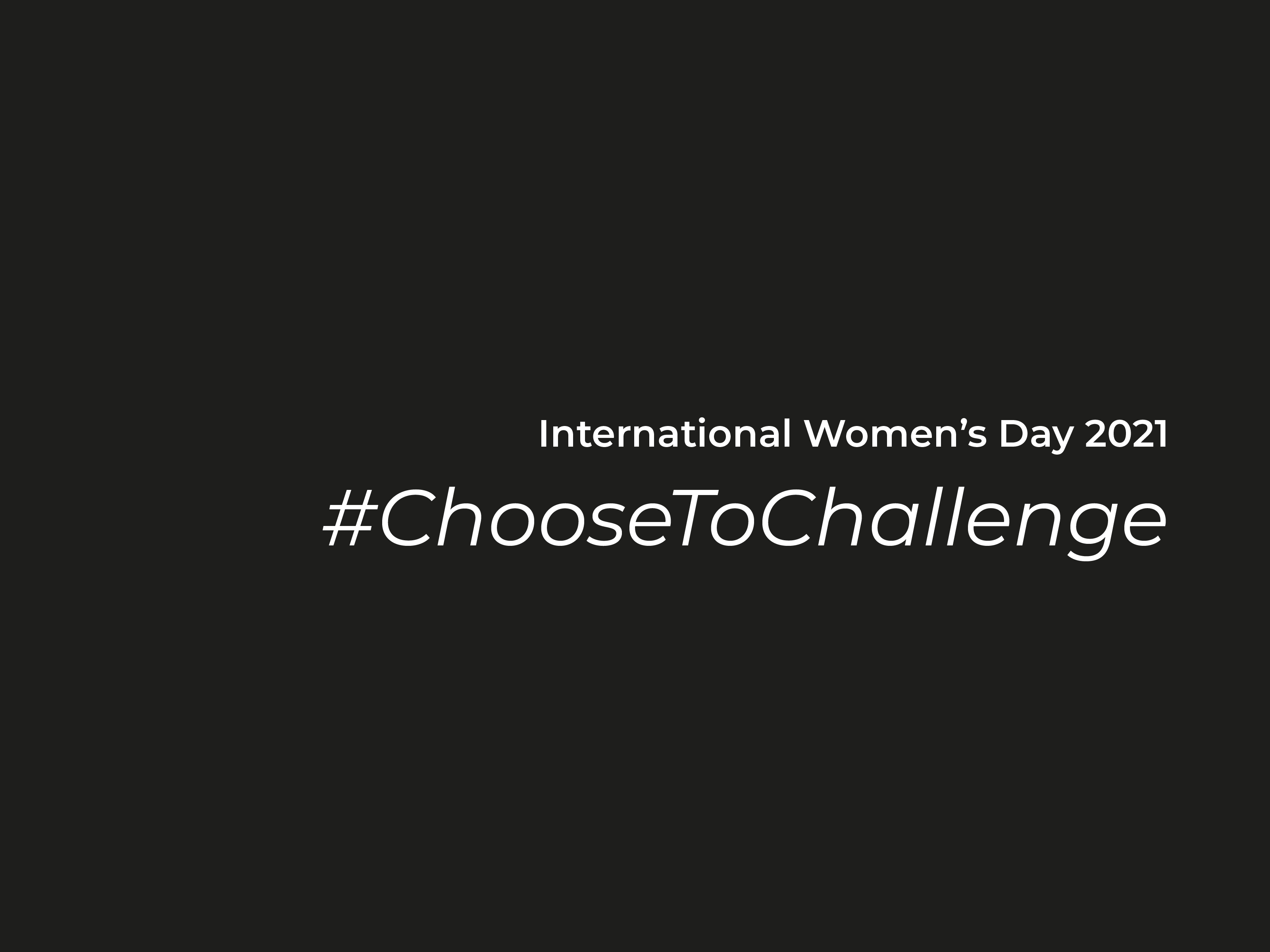A challenging world is an alert world. Individually, we're all responsible for our own thoughts and actions - all day, every day.
At Phaidon International, we choose to challenge and call out gender bias and inequality. We choose to seek out and celebrate women's achievements. Collectively, we can all help create an inclusive world.
From challenge comes change, we have an interview with Michelle Li, Regional Head of Learning and Development for Asia at Phaidon International, let's find out how she chooses to challenge.


What does the #ChooseToChallenge message mean to you?
When I think about 'choosing to challenge', the first thing that comes to my mind is Sheryl Sandberg and how she advocates for women needing to 'sit at the table'.
I think as females, we tend to believe we are just not good enough and we often lack the confidence to speak up. But it is important we make a choice - we should CHOOSE to believe we are good enough - and with that, our actions will define how we challenge the status quo.
What sort of conversations around gender equality do you have with your clients in your role? Has Covid-19 had an impact on gender equality?
As my stakeholders are internal, this is a topic that is always at the front of mind and something we continue to try and strike a balance with, especially when we look at hiring talent. Our conversations revolve around challenging what we know and how to break the myth of ‘what has always worked in the past, will always work in the future’. As an example, the type of talent we have always hired versus broadening our views on potential talents – with characteristics we had not considered before.
I believe Covid-19’s impact on gender equality has been subtle but profound. Traditionally, females have played the ‘caretaker’ in families and so they are often required to stay at home when their children are not attending school. For expectant mothers, they are also more likely to stay at home due to the risk of being in the workplace. What this means is, the female workforce will have less face-to-face interaction with their manager and the company compared to their male counterparts. When there is a potential promotion in the air, who is the manager likely to pick?
What role can recruiters play in challenging norms and creating change?
I think education is key. We don’t know what they don’t know. It could simply be the fact that our clients aren't aware of the importance of gender equality nor have they seen the benefits of this. As recruiters, we play a crucial role in sharing success stories that have come from having a gender-balanced workforce. We also play a crucial role in sharing the strategies other clients adopt in creating gender equality. Our role is to push boundaries and break assumptions with gender biases by positively challenging our client’s own biases.
What advice would you give to a company trying to create a diverse hiring strategy?
From my experience, one of the common causes of gender inequality is because we tend to hire people like ourselves. This extends beyond gender and includes other characteristics including race, age, interests among many traits.
This is further fueled by ‘referral programs’ – where we are rewarded by referring someone within our network. Referral programs are effective, but they fuel further challenges if gender equality is not properly recognized in the organisation – especially given a male-dominated management workforce in the common workplace.
The advice I would offer would be to first, increase awareness among the management population on gender equality and its benefits. We need to change the fundamental belief to have lasting change. Hold workshops and forums on the topic, collate performance insights with a gender-balanced team versus a gender imbalanced team – share the wins within the organisation. Bust the myth for hiring managers by holding them accountable to include a minimum number of females they meet when they are hiring.
As a female leader, what advice would you give to other aspiring leaders in overcoming potential gender biases and achieving career success?
The most important lesson for me has been learning to back myself.
I once read that men are more likely to nominate themselves for a job they cannot do - whereas women are less likely to nominate themselves for a job they can do!
Unfortunately, we cannot always control how others think and act on gender biases. But what we can control is having confidence in our abilities and being unbelievably fearless in demonstrating our abilities. This innate belief will define your actions and help you break those barriers that we often set ourselves.
About Michelle Li
Michelle Li is currently the Regional Head of Learning and Development for Asia within Phaidon International.
Visit other International Women's Day related content








